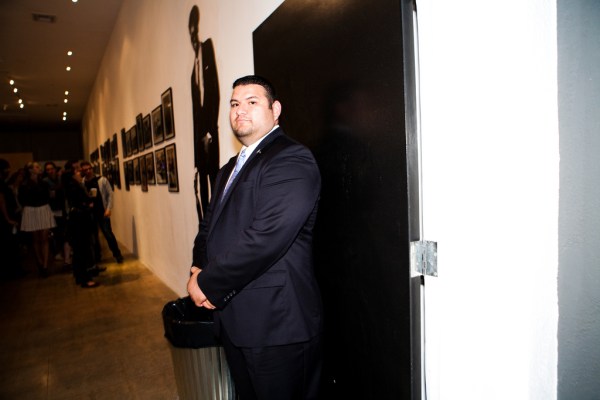It looks like this is going to be the year of the “Uber for things that aren’t rides” in Silicon Valley. While the market for similar services — like shipping packages or grocery shopping — is already starting to develop, the concept is starting to move onto totally unrelated markets. Bannerman, for instance, is a startup in the Y Combinator Summer 2014 class that sounds a lot like “Uber for security.”
With Bannerman, you can visit their site, give a date, address, and the number of security guards you need, and within 30 minutes they’ll have everything set up. Not quite Uber-level speed, but way less of a hassle than trying to find and arrange similar services through a private security company.
That’s not me regurgitating what I’ve been told by Bannerman’s cofounders. Two years ago, I was in charge of arranging events for a student organization at Berkeley, where we were encouraged to bring in security for events of a certain size.
Researching private security isn’t a trivial task. Most people have no idea what any of the certifications companies claim mean, or how to do a background check, or even where to start the search. My fellow organizers and I would often decide to simply scale back our ambitions for events rather than potentially bring in a sketchy security guard.
That’s not an option for professionals tasked with putting together events for their employers or the causes they care about. So they’re forced to either go for the high-end firms that guarantee a certain level of service, or risk going with a less reputable security provider.
With its $35 per-hour, per-guard flat rate (paid after an event has gone on without a hitch), Bannerman is shooting right for the middle of those two markets. That gets you a lot of what the pricier firms on the market provide, like guaranteed background checks through the California Department of Justice and the FBI, insurance for the guards on duty, and the assurance that guards have received a minimum of 40 hours of training.
Oh, and of course Bannerman promises that guards will have “physical presence for visual deterrence.” Translation: these guys are huge. That doesn’t come as much of a surprise, as co-founder Johnny Chin told me last week that most of the guards that Bannerman has recruited are veterans of Afghanistan and Iraq.
The company describes itself as “a website that makes it possible for anyone to book security on demand for business or personal use.” It’s almost odd to hear a startup describe their service as “a website” in this era of mobile-first development, since most young companies in the Silicon Valley tech scene have found that targeting the device that’s always on you is rather lucrative.
In this case, it makes some sense. If you’re organizing an event, you’re generally dealing with mass emails, some kind of online registration system, interacting with caterers, and maybe even arranging shuttles for people. While organizing a shindig at your place might be feasible on your phone, getting tens of people to go to an office party or an art gallery requires a bit more digital heavy lifting. With that said, I wouldn’t be surprised to see Bannerman release an iOS app before they’re done with Y Combinator.
While I can definitely see how Bannerman is a huge improvement over the security options event organizers have today, it’s difficult to predict just how big the market is for getting security guards to a particular event quickly. The company sent me an eye-popping estimate for the size of the global security market in 2016: $244 billion. But a quick look at the summary for the study that gives that figure shows that it includes lucrative services like armored transport and private prison management, so unless Bannerman is already planning on vastly expanding the services it offers, it should probably find a better figure for the size of the pie from which it’s trying to get a slice.
With that said, history has shown that the “software eating the world” strategy tends to not only capture a large portion of a market, but also expand the size of the market for a good or service. Just as Uber making it easier to get a ride leads to people getting more rides, it’s possible that making it easy to get security will lead to people getting security for more events than they would have in the past.
Considering the startup is only operating in San Francisco for now, they have room to figure out who might be interested in additional security before expanding to other markets. Right now, notable customers include Speakeasy and Zendesk, but I could see techies using the service to provide security for their wildly opulent private parties and bars using it to add a couple bouncers after a particularly rowdy Giants game.
